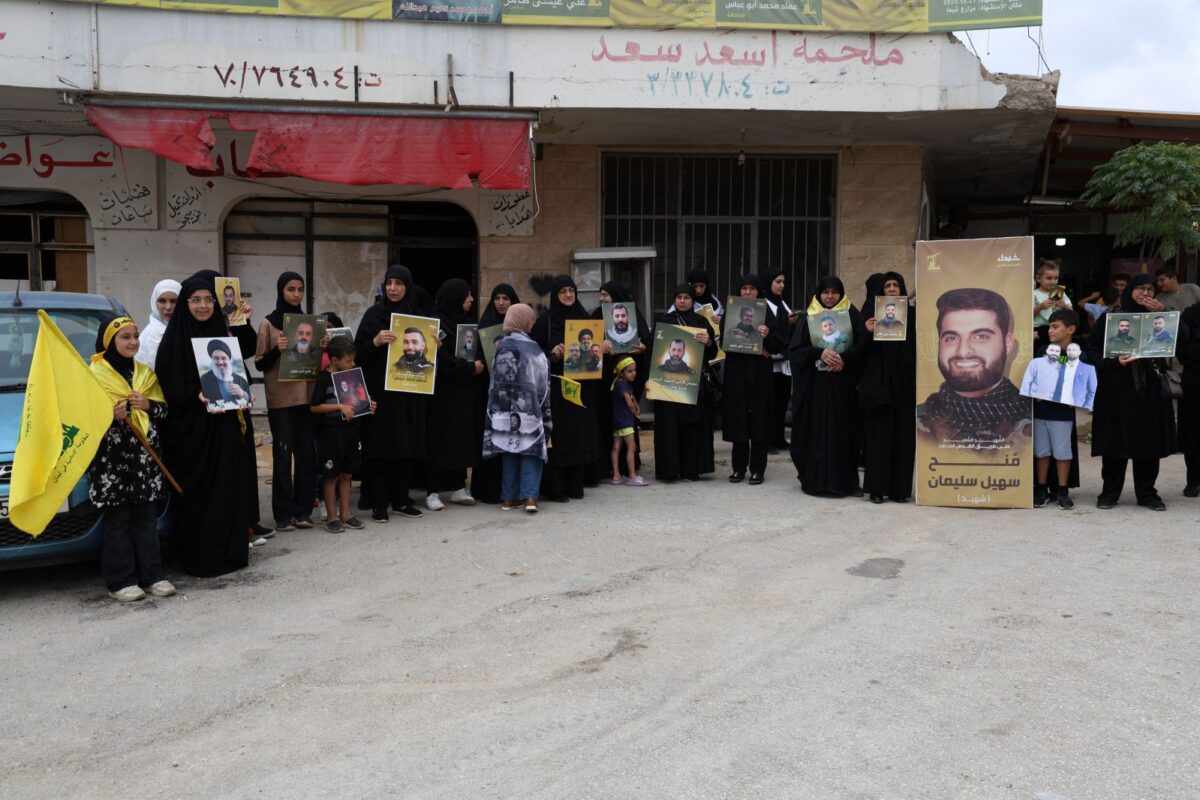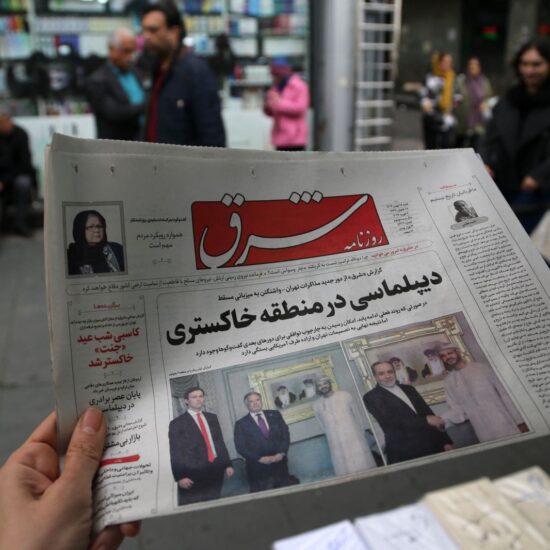
As Lebanon braces for the disarmament plan of Hezbollah’s arms under the Lebanese army, the country waits on tenterhooks to see its fate, with the one-year anniversary of the 66-day war approaching in September
The most heated political debate in Lebanon today centers on the disarmament of Hezbollah and other non-state armed groups — a question that has divided the country for years. On Friday, Prime Minister Nawaf Salam announced that the cabinet will convene on 5 September at the Baabda Presidential Palace to review the Lebanese army’s long-awaited plan to implement nationwide disarmament.
Originally scheduled for 2 September, the session will focus on a strategy the army was tasked with drafting at the start of August. According to Salam’s office, the plan seeks to establish the military as the sole legitimate armed force in the country.
The announcement comes as Speaker of Parliament Nabih Berri used the annual commemoration of Imam Mousa al-Sadr’s disappearance to defend Hezbollah’s arsenal and denounce calls for its dismantlement. In a televised address, Berri argued that “satanic minds” working to weaken Lebanon were “more dangerous than the weapons of resistance that liberated the land and the people and preserved dignity and national sovereignty.”
Berri accused political opponents of leading “campaigns of bullying, insults, and demonization” against a key sect within the Lebanese entity, suggesting these same forces were responsible for obstructing political stability in the past and continue to prolong institutional paralysis.
While stressing his bloc’s commitment to the constitution and UN Resolution 1701, which governs the ceasefire with Israel, Berri insisted Hezbollah’s arms remain a matter of national pride. Still, he said he is open to dialogue over their future — but only “within a calm and consensual framework” that leads to a comprehensive national defense strategy.
The Speaker rejected the notion that the Lebanese army could be made solely responsible for confronting Israel, describing the institution as “the nation’s shield and impregnable fortress.” To “throw the ball of fire into the lap of the Lebanese Army,” he warned, would be both unfair and nationally unacceptable.
Berri also dismissed a recent American proposal that he said went beyond arms control and sought to replace the November ceasefire agreement. Lebanon, he argued, has abided by its commitments under the deal, while Israel continues to violate sovereignty and maintain occupation of Lebanese territories.
In Lebanon
UNIFIL for another year: The United Nations Security Council voted on Thursday to extend the mandate of the UN peacekeeping mission in southern Lebanon, known as UNIFIL, until the end of 2026. Beginning in 2027, the mission will enter an “orderly and safe” process of drawdown and withdrawal.
The decision follows strong pressure from Israel and the United States, who have long criticized UNIFIL for allegedly offering Hezbollah political cover since the 2006 war. Both countries argue that the force has failed to disarm Hezbollah — despite the fact that disarmament does not fall within its official mandate.
Syrians Depart: At Lebanon’s northern Arida border crossing, long lines of buses and small trucks stretched across the highway as Syrian refugee families loaded their belongings for a final return to their homeland.
The uptick in departures follows a recent decision by Lebanon’s General Security to relax exit procedures for Syrians and Palestinians, regardless of their legal status. Under the directive, those who leave before September 30 are exempt from paying fines and fees exceeding $50 per person. Authorities have warned that tougher measures will take effect after that deadline.
More Threats: Israel carried out heavy bombardment in the wooded area of Ali al-Taher, where fires later broke out, and in al-Debsha, where significant damage was recorded. According to NNA, Israeli jets fired “a large number of missiles,” while AFP photographs showed thick plumes of smoke billowing over the area. In a statement, the Israeli military claimed it struck “military infrastructure, including underground facilities, at a Hezbollah site where military activity was identified, in the area of Beaufort Ridge in southern Lebanon.”
Barrack and his acts: U.S. envoy Tom Barrack revealed in a recent X-platform interview that he had urged Israeli Prime Minister Benjamin Netanyahu during private talks to “give Lebanon a break… give them a whiff of tolerance and understanding.” He pleaded for a 30- to 45-day window for Lebanon to enact economic programs and deliver tangible efforts to its Shia community—“You’re not gonna lose anything… just be the perfume of tolerance and understanding,” Barrack recounted, noting that Netanyahu gave his agreement.
This appeal comes on the heels of Barrack drawing sharp criticism—and a formal apology—for describing Lebanese journalists as “animalistic” during a press conference at the presidential palace.
Salam and his promises: Prime Minister Nawaf Salam has called on Arab and international partners to back Lebanon’s efforts to disarm Hezbollah, urging financial aid for both the state and the army.
In an interview with the Financial Times on Friday, Salam said Lebanon has taken the necessary steps but cannot move forward without external support. “We need equipment and funds for the army, as well as financial support for reconstruction and recovery,” he said. “We are planting the seeds of a strong state — you need to water them.”
Acknowledging criticism of his approach as stubborn, Salam said his focus is on building solid foundations rather than quick fixes. He added that he told U.S. envoy Tom Barrack that Israel must take reciprocal steps, including ending daily incursions, releasing prisoners, and withdrawing from occupied Lebanese territory.
In The Region
Iran’s Deals: France, Germany, and Britain have warned the UN Security Council they will trigger the “snapback” mechanism within 30 days unless a new nuclear deal is reached with Tehran, reinstating sanctions frozen since 2015.
The announcement immediately rattled Iranian markets: the rial plunged past one million to the dollar, gold prices spiked, and investors accelerated capital flight. Economists warn that sanctions would restore sweeping restrictions on banking, shipping, and energy investment, potentially slashing oil exports by up to 70% and shrinking GDP by a third, similar to the 2012–2015 crisis.
Houthis Targeted: The Houthis said Saturday that an Israeli airstrike killed Ahmed Al-Rahawi, the prime minister of the Houthi-led government in Yemen’s capital, Sanaa — the most senior Houthi official killed in the Israeli-U.S. campaign.
Al-Rahawi was targeted Thursday along with several ministers during a government workshop, the group said, adding that other officials were wounded.
The strike coincided with a televised speech by Houthi leader Abdul Malik Al-Houthi on Gaza developments and pledges of retaliation.
Abu Obeida’s Fate: Israel has claimed that Abu Obeida, the spokesman for Hamas’s armed wing, was killed in an aerial strike on Gaza City. Israel’s Defense Minister, Israel Katz, praised the operation as a “flawless execution” by the IDF and Shin Bet.
Hamas has not confirmed Abu Obeida’s death, leaving open the possibility that the reports could be part of a broader psychological campaign. The group previously reported that dozens of civilians were killed or injured in Israeli airstrikes on a residential building in the area.
Local journalists said at least seven people were killed and 20 injured in strikes on the densely populated al-Rimal neighborhood, including children.
Syria’s New Fate: Israeli Prime Minister Benjamin Netanyahu met with Sheikh Mowafaq Tarif, leader of Israel’s Druze community and ally of Sheikh Hikmat al-Hijri in southern Syria, who had requested Israeli support against government forces in Suwayda.
After the meeting on August 28 in Julis, northern Israel, Netanyahu said, “I am not a naïve person, and I understand whom we are dealing with,” referring to the Syrian government. He added that they are working to expose the recent massacres in Suwayda to the world and raise awareness among influential decision-makers, stressing, “There will be a settlement.”
What We Are Reading
No River of Fire: Journalist Valeria Rando reports that Syrian President Ahmad al-Sharaa, in a briefing to Arab media on August 24, acknowledged making “concessions regarding the wounds that Hezbollah inflicted on Syria” and choosing not to continue the fight after Damascus’s liberation. He emphasized a shift in Syria’s stance toward Lebanon and Hezbollah, saying, “There can be no river of fire, nor geographic curse between the two neighbors.”
When the Usurper of Sovereignty Lectures Lebanon on Sovereignty: Lebanon’s editor-in-chief Makram Rabbah slammed Hezbollah leader Naim Qassem’s speech on “restoring sovereignty,” calling it contradictory. He said true sovereignty requires Hezbollah to return control over war and peace to the state, warning that the party’s so-called “resistance” now serves Tehran, leaving Lebanese institutions, security, and the economy weakened.
Four learning days a week – unfair decision for public school children?:Journalist Rodayna Raydan reports that Lebanon’s Ministry of Education announced a new framework for the school year, sparking debate among teachers and parents worried about its effect on already fragile learning outcomes. The ministry says the plan eases pressure on schools while maintaining national standards, but concerns persist, especially in under-resourced public schools, amid years of COVID-19 disruptions, economic collapse, and the recent war.
Neighbors at the Table, Lebanon Making Its Case: Political psychologist Ramzi Abu Ismail highlights how recent statements from Israel and Syria reflect a rare acknowledgment of Lebanon’s sovereignty. He sees this as a shift in regional perceptions, where diplomacy, rather than militias, is now forcing recognition of the Lebanese state. Abu Ismail emphasizes the psychological dimension: such acknowledgment can strengthen national confidence and weaken narratives that non-state actors alone protect Lebanon.








